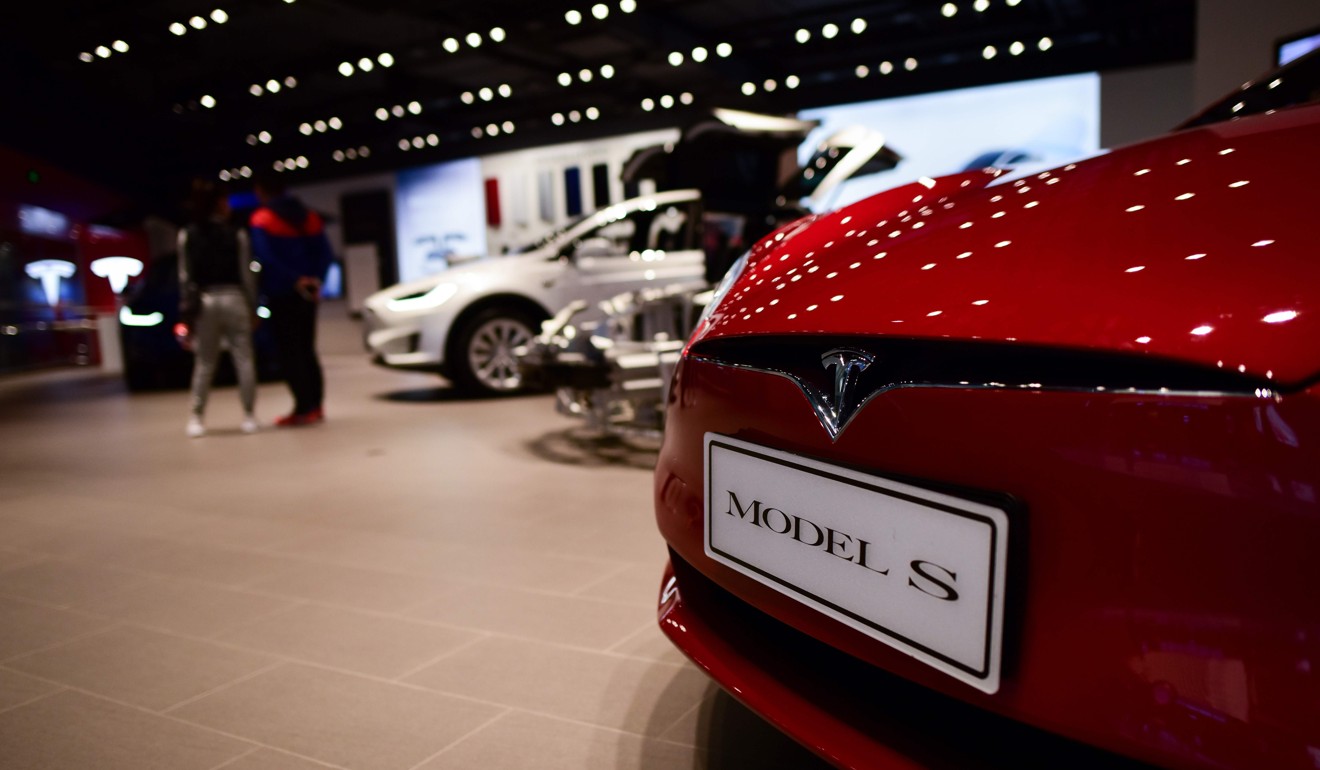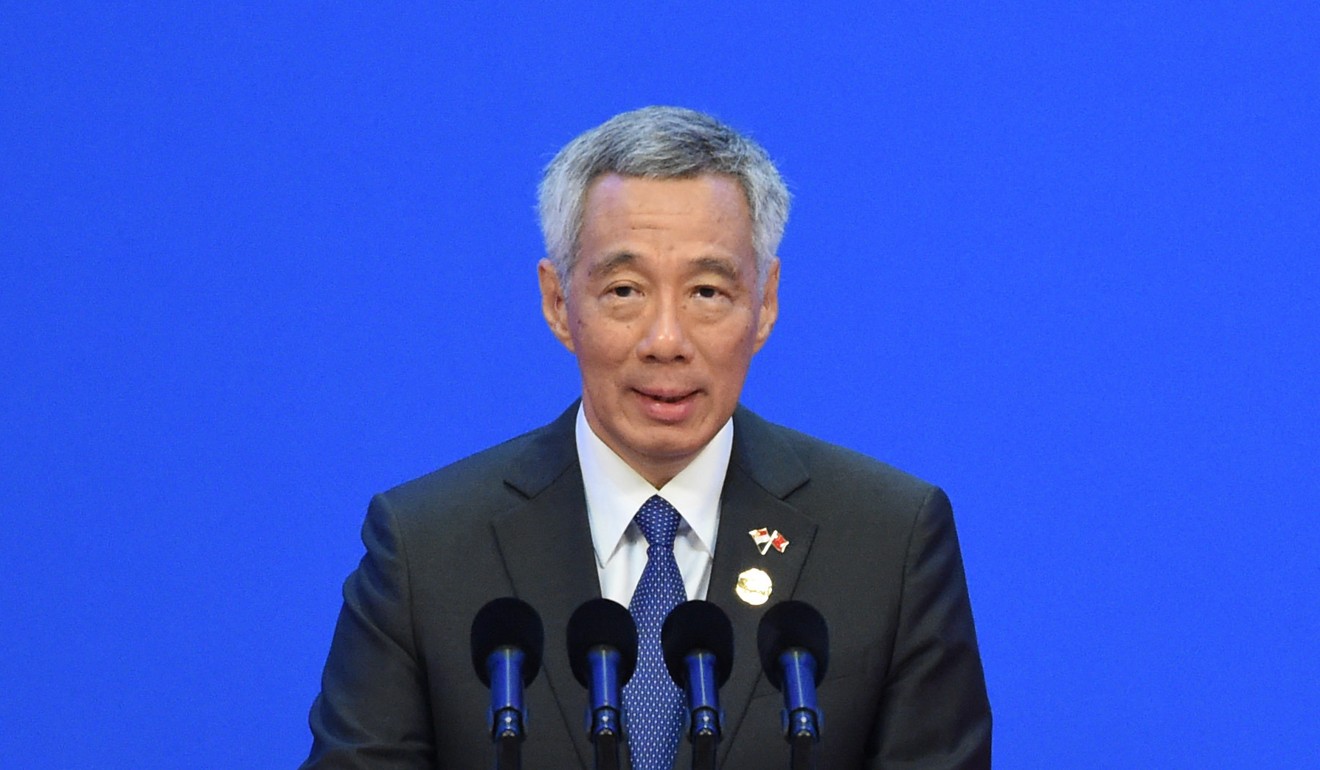
Chinese President Xi Jinping stands up for globalisation and free trade at Asia’s Davos
Lifting restrictions on foreign equity investments in Chinese financial firms, removing enforced partnership rules for carmakers among pledges made at Boao Forum for Asia
Chinese President Xi Jinping on Tuesday vowed to further open the nation’s economy and rallied support for globalisation in a bid to position himself as a leader in promoting international cooperation and free trade amid the threat of a trade war with the United States.
China’s earlier promises of removing foreign equity stake caps in banks, securities firms and insurance would be realised before the end of 2018, he said.
China would also lift foreign ownership restrictions in the car industry, he said, a clear hint that firms such as Tesla might soon be allowed to set up wholly owned plants in China without needing a local partner.
Xi also added that China would significantly lower import tariffs on foreign cars.
The promise came a day after Trump tweeted to complain about car trade with China, saying the US only imposes tariffs of 2.5 per cent for a Chinese vehicle while Beijing imposes charges of 25 per cent for American cars.
“Does that sound like free or fair trade. No, it sounds like STUPID TRADE – going on for years!” tweeted Trump.
The US has threatened to levy tariffs of up to US$150 billion worth on Chinese imports, complaining of unfair Chinese trade practices, including restrictions on market access and the alleged theft of intellectual property. Beijing responded with a list of American goods likely to face import tariffs as the trade dispute escalates.
China “sincerely” hoped to buy more from foreign countries to satisfy domestic demand, he said.
The bulk of Xi’s speech at the event attended by regional political and business leaders, and promoted as Asia’s answer to the World Economic Forum in Davos, was about his vision for China’s place in the world order, trying to sooth worries about nation’s rise and stressing its emphasis on peaceful development.
“We will never threaten anyone, nor overthrow the existing international system” no matter how rich or powerful China becomes, said Xi, who has become the most powerful Chinese leader since Mao Zedong.
“We will not seek to build up spheres of influence – China will always be a builder for world peace, a contributor to global development and a defender of international order,” he said.

Xi did not name the United States or Trump in his speech, but he made clear that China supported a multilateral trade system and is against a “cold war mentality” or “zero-sum game”.
“Being overbearing or isolationist can only hit walls,” Xi said. “Only by adhering to peaceful development and working hand in hand can we truly achieve multi-win and win-win results.”
Xi said China would proactively develop global partnerships and “firmly support multilateralism” for the sake of the “a community of common destiny” for all people, a phrase Xi favours to describe his future global vision.
That vision was met with delight by Trump on Tuesday, as he tweeted: “Very thankful for President Xi of China’s kind words on tariffs and automobile barriers...also, his enlightenment on intellectual property and technology transfers. We will make great progress together!”
This is not the first time Beijing has pledged to further open up its economy amid criticism from foreign firms about the barriers to operating in China.
Xi delivered a speech at Davos last year soon after Trump took office, positioning himself as a champion of free trade and globalisation.
Sceptics, however, have questioned whether China’s government is genuinely committed to further opening up its economy.
For example, the “Made in China 2025” government-backed initiative to help secure a Chinese advantages in hi-tech industries such as robotics and electric vehicles, has created unease among other countries.
Xi tried to address these concerns on Tuesday, saying China would be serious about protecting intellectual property rights and will tweak its domestic regulations to comply with international economic and trade rules.
Michael Clauss, the German ambassador to China, wrote in a note commenting on Xi’s speech that “promises to open up further have not been in short supply” but rhetoric alone would not change the fact that China was still extensively restricting foreign investment.
“We hope this time we will actually see some meaningful implementation,” he said.
Singaporean Prime Minister Lee Hsien Loong said after Xi’s speech that he hoped China and the US would be able to work out a solution and keep from further escalation in their trade disputes.

“A trade war between China and the US is still far from inevitable, but if one does happen it will undermine the multilateral trading system, which has underpinned global prosperity,” he said.
“What is ultimately at stake is war and peace, the security and stability of the world.”
The message from Xi may help to cool trade tensions between China and the US.
Robert Koopman, the chief economist at the World Trade Organisation, said it “would be very interesting to see the reception to Xi’s words today in Washington” as whether the speech start a conversation between the two sides.
Qian Keming, a Chinese vice commerce minister, said Beijing was trying to “set an example for the world in terms of market opening”.
“We see the trade disputes with the US as a fight between free trade and protectionism,” he said.
Additional reporting by Wendy Wu in Beijing and Sarah Zheng in Hong Kong




